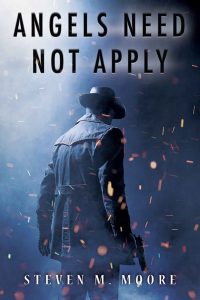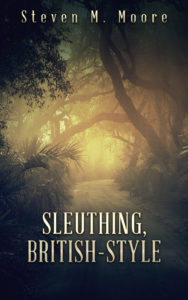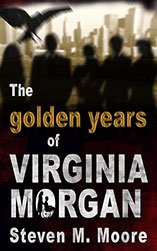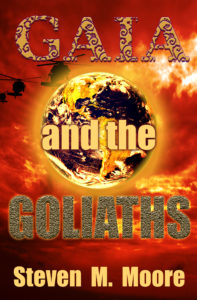Three new additons to my “British-style Mysteries” list…
September 1st, 2021Most readers of this blog and my recent works know that I’m surviving the Covid pandemic by reading a lot, in particular, binge-reading entire series of British-style mysteries. I published a list at the end of my little collection, Sleuthing, British-style, written in honor of Dame Agatha, who started that story tradition. So here are some additions to that list (in alphabetical order, which coincidentally corresponds to the order of light-to-serious themes), the best of my recent binge-reading:
A. G. Barnett’s “Mary Blake” series. Interesting concept: The subtitle’s character is an aging actor who has lost her series role and her career; she discovers she has talents as an amateur sleuth. A bit of stretch for the reader’s imagination, especially concerning the patience of the inspector she often annoys (she’s a younger, meddling Miss Marple), but entertaining stories nonetheless.
M. S. Morris’s “Bridget Hart” series. The subtitle’s character is a single mom who struggles to make her mark as a DI in and around the hallowed halls of Oxford University’s colleges. There are many secondary characters readers will find interesting.
Gretta Mulrooney’s “Tyrone Swift” series. Here the subtitle’s character is a PI who has good creds—he’s no amateur sleuth because of past service with the Met and Interpol. He also has problems with the women in his life. These novels are a bit darker about their treatment of more modern and serious themes than those above. The main character harks back to hard-boiled, tenacious PIs of yore.

If you use a Kindle, it’s amazingly easy to sail through these series, one book after another. I found each novel is far more entertaining than the summer’s offering of droll telly shows, whether “new” game shows or reality crap or reruns. Sorry. Streaming video doesn’t appeal to me either, nor do computer games. Each novel is good for two to three nights of reading (they’re short).
Modesty aside, I’ll not refrain from mentioning Books Four and Five in the “Esther Brookstone Art Detective” series, Palettes, Patriots and Prats and Leonardo and the Quantum Code. The influence of all that binge-reading is obvious as Esther and Bastiann return to her home turf after their honeymoon only to run into more trouble on UK soil. The glossary in my collection mentioned above is extended in these novels as I continue to adopt the British vernacular if not the spelling, (The entire series represents ripe fruit for binge-reading, of course, but the novels are longish and hardly readable in two or three nights. Maybe the five in total equal fifteen of the above?)
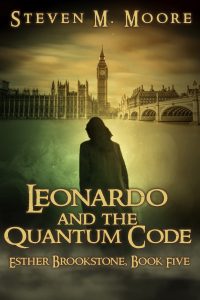
I can only wish for other extended series in the sci-fi and thriller genres (besides my own, of course). The last one I read in the first genre was Asimov’s extended Foundation series, and that was years ago! Clancy’s “Jack Ryan” series is also too dated (not that it has the caliber of any of the books I’ve mentioned). (If anyone shouts back “Fifty Shades,” I might become violent. The “thrills” there are sicker than a story about a serial killer!) The fact that there are so many British-style mysteries shows they’re popular and a blessing for avid readers who still prefer books to streaming video and computer games.
In all these British-style mysteries, including mine, American readers have a chance to learn a lot about their English cousins…and sometimes those cousins will have a chance to learn a bit about us, the crazy Yanks!
***
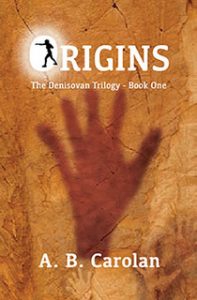
Comments are always welcome.
A. B. Carolan’s Origins. You can’t say A. B.’s novels are British-style mysteries; he’s Irish, and he writes sci-fi mysteries for young adults. In this one, Kayla Jones has dreams she can’t understand. Her future seems determined as the brilliant STEM student who looks forward to a research career, but her past gets in the way. As if the chaos afflicting the world and leading to her adopted father’s death wasn’t enough, killers begin to pursue her. With some friends who come to her aid, she’s on her way to discover a conspiracy that can be traced to prehistoric battles waged by hominins bent on conquest of a primitive Earth.
Around the world and to the stars! In libris libertas!

